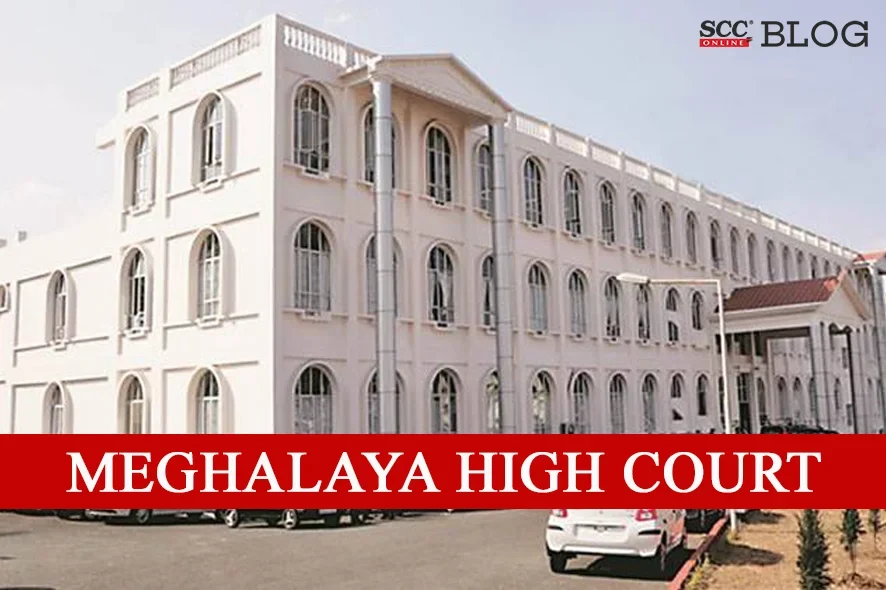Meghalaya High Court: In the appeals filed against the Judgment and order passed by Income-Tax Appellate Tribunal (‘Tribunal’) wherein, the Tribunal found that the law laid down in Commissioner of Income-Tax v. Mahari and Sons, 1991 SCC OnLine Gau 85 (‘Mahari and Sons’) was no longer good, the Division Bench of Sanjib Banerjee*, C.J. and W. Diengdoh, J., did not express any final opinion on the primary legal issue- that whether the ratio decidendi in the Mahari and Sons (supra) would be applicable in the present matters. The Bench had decided to remand the matter before the Appellate Tribunal and directed the President, Income Tax Appellate Tribunal to constitute a special Bench for afresh consideration of the matter.
Background
In Mahari and Sons, wherein, all the members of tribal family were engaged in the business. A question was raised before the Gauhati High Court that, whether the exemption granted under Section 10(26) of the Income Tax Act, 1961 (‘the Act’) was restricted to an individual or whether the same could be extended to a group of individuals, particularly if they were family members. The Gauhati High Court had held that when certain individuals who belonged to the same family had set up a business jointly, they would be entitled to the benefit of the exemption under Section 10(26) of the Act.
In the impugned Judgment, the Tribunal had found that the law laid down in Mahari and Sons was no longer good as subsequent Judgments were passed by the Supreme Court which had discredited the previous principle that a taxing statute had to be interpreted strictly and the benefit of the doubt had to be given to the assessee. Therefore, the Tribunal had opined that the law as it now stands is that the taxing statute must be interpreted strictly but it no longer holds good that the benefit of any doubt would go to the assessee.The Tribunal had also said that when a juristic entity seeks to claim a benefit of an exemption, it must fall within the class or classes of persons to whom the exemption has been extended and that an exemption clause cannot be charitably interpreted to enlarge the scope to confer benefits on others not specifically intended to be covered by the same.
In the present appeals, in one of the matters, the husband and wife are the partners of a registered partnership firm and in the other matters the uterine brothers constitute a partnership firm.
Issues
-
Whether the ratio decidendi in the Judgment Mahari and Sons (supra) would be applicable in the present matters?
-
Whether the dictum in Mahari and Sons still holds good despite apparently contrary Judgments of the Supreme Court pronounced in matters pertaining to the interpretation of a taxing statute and the strict interpretation of an exemption clause in a taxing statute.
Court Analysis
The Court said that it cannot be missed that the rule enunciated in Mahari and Sons has held the field for more than three decades and persons may have organised their businesses in accordance with it. The Court also said that there was no doubt that the Appellate Tribunal had noticed the dictum in Mahari and Sons, however, the exercise appeared to have been done in a rather cavalier manner without covering the entire scope of the discussion possible on the issue. The Court had also explained that the Tribunal in its impugned order had made no distinction between a partnership firm with close relatives as partners and any other partnership firm where the partners are unrelated. Despite the recognition of the wide ambit of what can be called family business in Mahari and Sons, the impugned order had only relied on the fact that close relatives had formed a partnership firm while missing out the applicability of the dictum in Mahari and Sons by virtue of the partners being close relatives.
The Court also said that none of the Supreme Court Judgments referred to in the impugned order by the Tribunal expressly dealt with the situation covered by Mahari and Sons. Further, the Court added that when Constitutional Courts take up challenges to orders passed by a specialised Tribunal, such Courts must tread with extreme care and caution. A body that deals with a particular type of matters on an everyday basis is expected to have greater command over the law applicable in the field and thus, a Constitutional Court would not interfere with a view expressed on interpretation unless it appears to be grossly inappropriate and almost outlandish.
The Court said that on balancing both sides, the fact that the dictum in Mahari and Sons had held the field for three decades and that the fact that order impugned was rendered by a specialised Tribunal, it was fit and proper to remand the matter before the Appellate Tribunal with a request to the President of the Tribunal to constitute a larger bench of at least three members, without including either member who was a party to the order impugned, for the consideration of the entire gamut of the matter. The Court also directed to dispose of the legal issue as expeditiously as possible and, preferably, within three months of the first sitting of such Bench.
Therefore, the Court disposed of all the appeals with without expressing any final opinion on the primary legal issue and set aside the common impugned order and said that the matter should be considered afresh before the special Bench of the Appellate Tribunal.
[Ri Kynjai Serenity & Hotel Centre Point v. Principal Commissioner of Income Tax, 2023 SCC OnLine Megh 342, Decided on: 06-07-2023]
Judgment By: Chief Justice Sanjib Banerjee
Advocates who appeared in this case :
Advocates for petitioner: Advocate S. Sen, Advocate S. Modi, Advocate Mr. P. Nongbri;
Advocate for respondent: Advocate S.C. Keyal.







